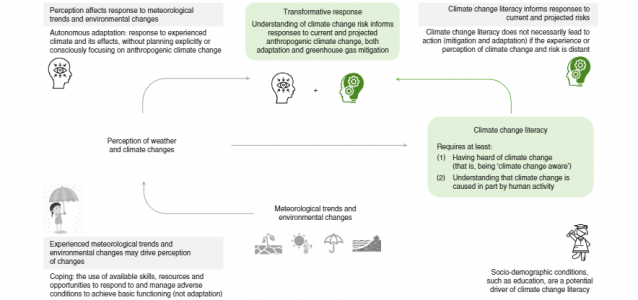Climate change literacy in Africa
Climate change literacy encompasses being aware of both climate change and its anthropogenic cause, and thus underpins informed mitigation and adaptation responses. However, climate change literacy rates and their predictors remain poorly understood across the Global South. Here analysis of Africa’s largest representative public opinion survey shows climate change literacy ranges from 23 to 66% of the population across 33 countries, with larger variation at subnational scales (for example, 5–71% among states in Nigeria). Strong positive predictors of climate change literacy are education and mobility, but poverty decreases climate change literacy, and country-level climate change literacy rates are, on average, 12.8% lower for women than men. Perceived drought experiences and historical trends in precipitation are also important predictors. These results highlight where interventions can target specific regions and demographics to increase climate change literacy and help ensure that responses are informed by better understanding of current and future climate change.
Paper Link:
Simpson, N.P., Andrews, T.M., Krönke, M., Lennard, C., Odoulami, R.C., Ouweneel, B., Steynor, A. & Trisos, C.H. 2021. Climate change literacy in Africa. Nature Climate Change. doi.org/10.1038/s41558-021-01171-x
